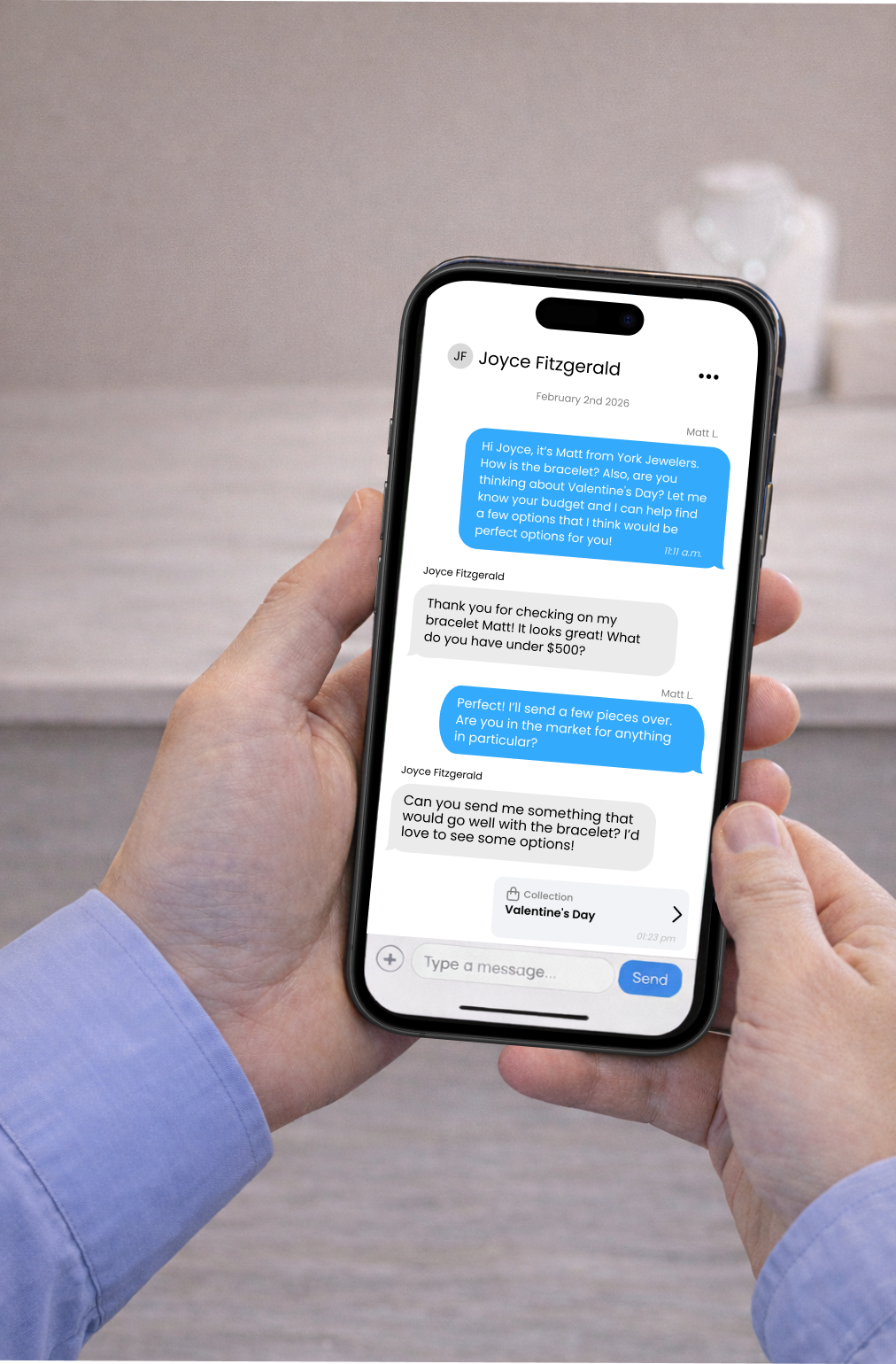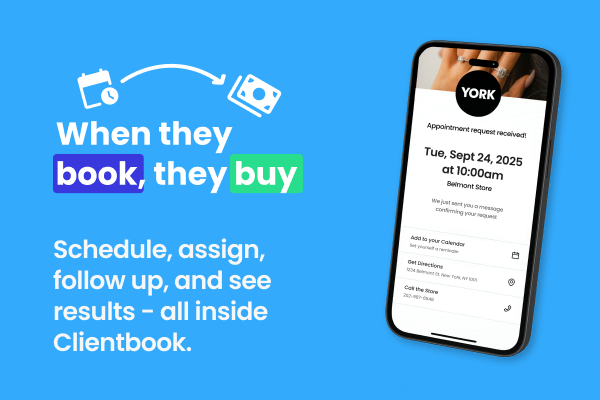Retailers in the luxury segment have a new kid on the block who's making big waves in the industry: Gen Z. For this younger generation, the appeal of luxury brands—including in the apparel industry, jewelry, beauty, and other personal luxury brands—is growing strong, and they're putting big dollars behind their interest.
With Gen Z becoming increasingly invested in high-end products, luxury retailers have a big opportunity to tap into this audience for big sales growth. But what exactly does Gen Z care about, and how do you market to them successfully?
In this article, we'll cover everything retailers need to know about Gen Z, what motivates them to buy, and how you can attract them to your store.
Download our free eBook to learn exactly how to win Gen Z's business
Who is in Generation Z?
Generation Z, or Gen Zers, is the generation following Generation Y, or the Millennials, and preceding Generation Alpha.
The birth years where a Gen Zer falls differ slightly based on who you ask, but generally speaking, most researchers agree that those born between the late 1990s up to the early 2010s are considered part of Generation Z.
Recent U.S. Census data estimates that there are roughly 68.6 million Gen Zers in the United States, or about 20% of the country's total population.
Why should luxury brands market to Gen Z?
For those selling in the luxury industry, understanding what makes Gen Zers tick is key to unlocking their huge spending power. Gen Zers are quickly making up a large portion of the country's luxury consumers, from everything to beauty, fashion, cosmetics, jewelry, and more.
Here are just a few reasons luxury brands should put their marketing power behind Gen Z:
- Gen Z has big buying power: Despite their young age, the Gen Z cohort collectively has a good chunk of cash to spend. According to a Bloomberg report, Gen Zers have an estimated $360 billion in disposable income.

- Younger generations are a big part of the luxury market: Bain & Co reports that members of Generation Y and Z accounted for all of the luxury market’s growth in 2022. What's more, spending by Gen Z and Gen Alpha is expected to make up a third of the luxury market through 2030.
- Online sales give young people access to brands: Gen Z is making luxury purchases at a younger age than previous generations largely because they have easy access to brands in the palm of their hands. Online luxury fashion brands and other luxury companies' websites and social media pages are big with Gen Z.
How luxury brands can target Gen Z customers
Now that we've covered who Gen Z is and why they're such important luxury consumers to watch, let's talk about how you can successfully tap into their appeal of luxury brands for your business’s benefit.
Have a solid online presence
First, when trying to attract Gen Z luxury shoppers, you've got to have a digital presence, including a website, social media pages, and a listing on sites like Google and Apple maps.
Omnichannel retailing—a business strategy that aims to provide a consistent retail experience across all channels customers access your business from—is what Gen Zers expect.
And don't forget about your online reviews. When looking for a brand to shop with, Gen Z does their homework. A report with Adolescent Content found that 82% of Gen Zers research a brand before making a purchase, and that includes reading up on your reviews.
In short, if you want to see an increase in luxury spending with your Gen Z customers, you've got to be selling your products where they're shopping.
Engage with them on the right channels
In addition to selling your luxury products on digital channels, you also need to engage with your Gen Z customers through virtual means. Your approach to customer service can't be limited to only in-store interactions.
This means regularly posting on social media, joining online groups and communities in the luxury segment, responding to online reviews, and following up often via email and even text.
Not only will this help you build customer relationships with a younger audience, it will also do great things for your online luxury sales. Statista reports that in a survey of Millennials and Gen Zers, nearly two-thirds reported having made a purchase on their smartphone as a result of branded social media posts or content shared by influencers.

Always be true to your word
When looking at Gen Z's values, at the top of the list is honesty. However, many young people don't believe brands are fully transparent about their words or actions. Adolescent Content reports that 78% of Gen Zers believe that brands are all talk and no action, and brands say things they simply don’t mean.

So if you make a claim about any of your luxury listings, whether about its price, how it was made, or where it came from, it needs to be 100% the truth. No fine print or confusing language to hide realities.
This also applies to how your retail sales associates talk to younger customers. The younger generation doesn't just want to be sold to. They want genuine retailers who care about them, their personal style, and what's best for them.
That's why training your team on relationship selling techniques will go a long way to connecting with your Gen Z audience and building a quality customer relationship.
Make them feel like a VIP with personalized offers
Finally, all buyers of luxury items want to feel like a VIP, Gen Z included. After all, they're likely planning on spending a lot of money on high-end products if they're shopping with you. That means they'll want to put that money toward not only an excellent product, but also an excellent customer experience.
One of the best ways to ensure a high-quality customer experience is to personalize the shopping experience for your buyers. When you make a personalized offer on a type of product a buyer has bought in the past, you're far more likely to retain them long-term and encourage them to come back and shop with you.
Data from McKinsey & Company finds that personalization leads to a 10 to 15 percent increase in revenue, and over three-quarters of consumers said that receiving personalized communications was a key factor in prompting their consideration of a brand.

How Clientbook can help you engage with Gen Zers
If you want help connecting with Gen Z, clienteling with Clientbook can help. Clienteling is a retail technique used to build long-term relationships with key customers by personalizing the customer experience and connecting with buyers on a personal level.
With clienteling software like Clientbook, your sales associates can easily collect and store client data, create custom wish lists for each client, and even text clients with personalized offers based on their purchasing history.
It's the perfect way to integrate the digital experience into what you're already doing in-store, allowing you to connect with Gen Z and enhance their customer experience.
Check out our fashion industry page to see how Clientbook can help elevate your fashion business
Conclusion
Gen Z is a huge potential market for luxury retailers to tap into. By getting on the right channels, engaging in honest marketing, and personalizing the shopping experience, you'll be well on your way to attracting Gen Z shoppers to your store, both in-person and online.
If you're ready to see how Clientbook can help you better connect with your Gen Z clients, schedule a demo today.





